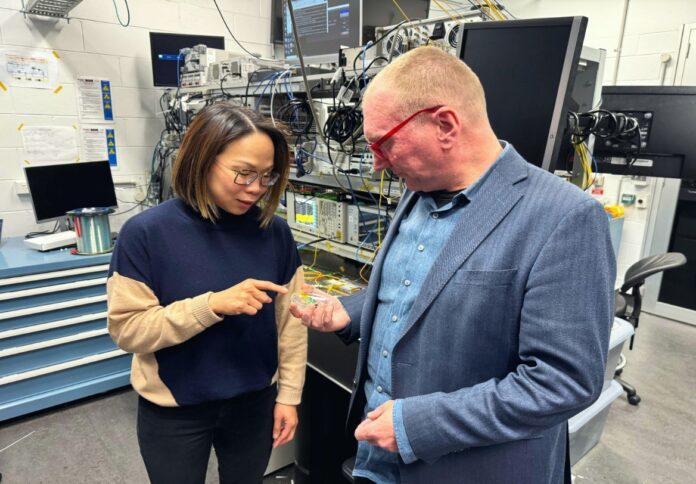
A new collaboration between Australia and India is advancing satellite navigation technology through the development of light-based microchip systems designed for low Earth orbit applications.
The initiative, supported by a $3.7 million Australian Government grant, brings together RMIT University, Australian air traffic management company Skykraft, and Indian microchip manufacturers.
Central to the initiative is an advanced system called microcombs, created by researchers at RMIT.
These photonic microchips are versatile and can be quickly tailored for applications that rely on light, such as positioning, navigation, and timing (PNT) functions.
The collaboration aims to scale up these chips for deployment in low Earth orbit satellites and establish a robust supply chain between Australia and India.
The technology also aims to provide smaller, more affordable PNT capabilities that could complement existing global systems like GPS and regional alternatives such as the Indian Regional Navigation Satellite System.
By developing sovereign navigation systems, both nations aim to enhance resilience and reduce reliance on US and European providers for critical PNT infrastructure.
Professor Suelynn Choy, from RMIT’s School of Science, highlighted the vulnerabilities of global reliance on GPS, noting that disruptions to the system could leave entire regions without positioning and navigation data.
“Australia and India have some very specific challenges and opportunities – particularly our large land mass, vast borders and primary industries relying on positioning, navigation and timing data – GPS may not be the right technology for all of these needs,” she said.
Choy also emphasised the advantages of low Earth orbit satellites, which provide stronger signals less susceptible to interference and perform better in built-up environments where traditional GPS systems often struggle.
Distinguished Professor Arnan Mitchell, Director of the Australian Research Council Centre of Excellence in Optical Microcombs for Breakthrough Science at RMIT, noted that the microcombs technology offers a portable and affordable alternative for time synchronisation in smaller satellites.
“This portability opens up opportunities for more accessible and deployable satellite networks,” he said.
“This project presents an exciting opportunity for forming closer ties between Australia and India, where we collaborate to develop our microcombs technology and find innovative solutions for global positioning, navigation and timing challenges.”
The partnership is part of the Australian Space Agency’s International Space Investment India Projects initiative.



















